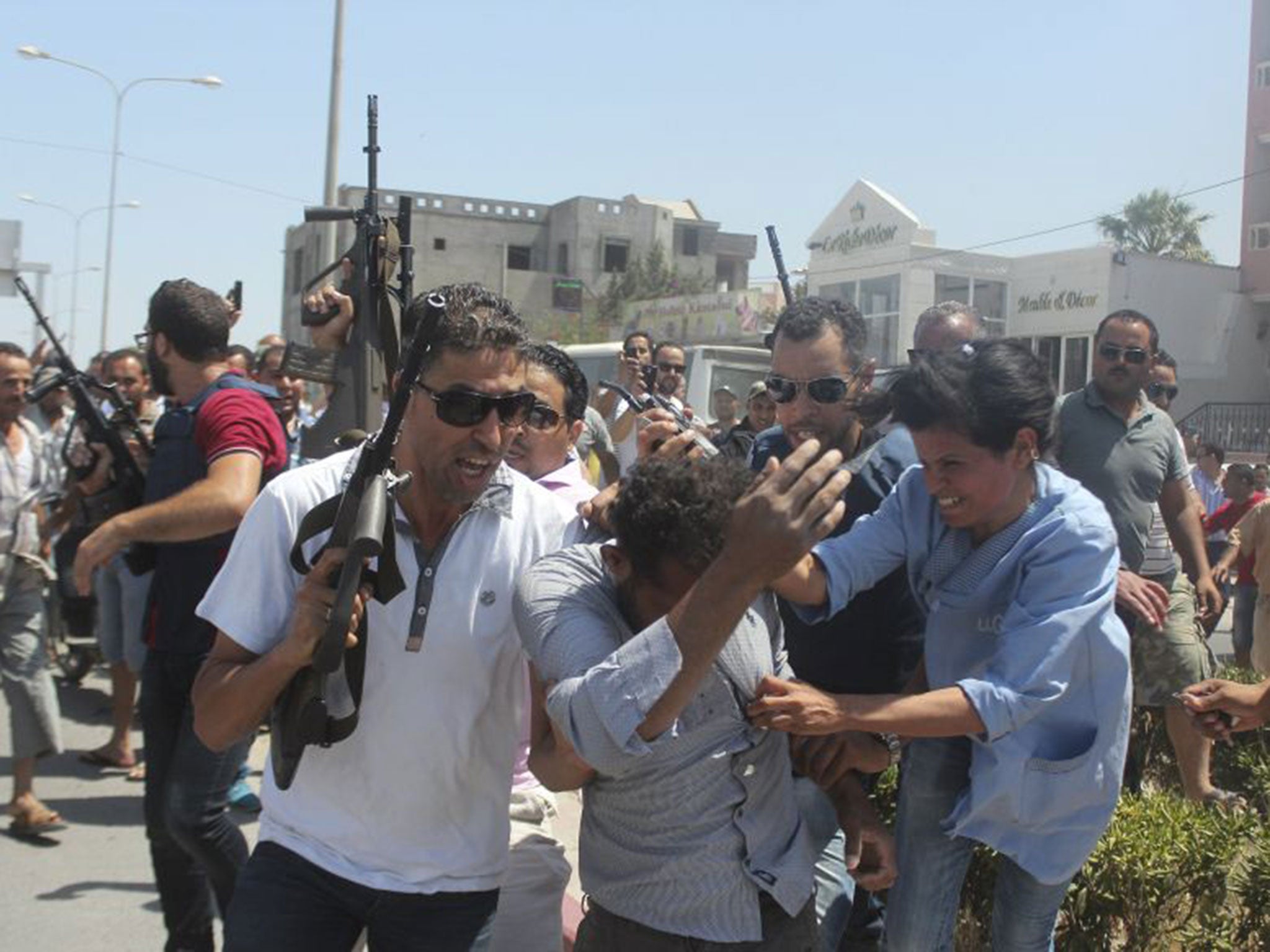Tunisia hotel attack: The repercussions of a tragedy that has reverberated around the world
It is the worst slaughter of holidaymakers since the Luxor attack of 1997

“Your life depended on how quickly you could run” - so said a tourist named Amanda on BBC 5 Live in the immediate aftermath of Friday's massacre.
In seconds, the blissful holiday beach where she was relaxing turned into a battle zone where only the fastest survived, as tourists found themselves in the frontline of the Islamist war on the West.
It is the worst slaughter of holidaymakers since the Luxor attack of 1997. In that attack, 62 people - mostly tourists - died in an armed assault on an archaeological site. Now, as then, the tragedy reverberates well beyond the families and friends of the immediate victims.
A charter flight from Belgium to the resort airport, Enfidha, turned around once news of the massacre emerged, dropped off its passengers and flying back to pick up Belgian holidaymakers desperate to leave Tunisia. That constituted the first tangible evidence of the terrible reality that tourism to Tunisia has been destroyed for the rest of the year, possibly for the rest of the decade.
Tens of thousands of people will lose their livelihoods, and Tunisia’s already fragile economy will be profoundly weakened.
Even before the gunning down in March of visitors to the Bardo Museum in Tunisia, the Foreign Office warned prospective holidaymakers to Tunisia: “There is a high threat from terrorism … Attacks could be indiscriminate, including in places visited by foreigners.” So why, grieving relatives will want to know, was Tunisia not placed off-limits after that atrocity?
The diplomats who compile the government’s travel advice have a very difficult task. The Arab Spring began in Tunisia in December 2010. As public unrest grew, around 2,000 British holidaymakers on holiday were evacuated on the advice of the Foreign Office. As events unfolded, it turned out to be an over-reaction: in all the turmoil that surrounded the overthrow of the dictator, President Ben Ali, not a single tourist was harmed, and after a few months the “no-go” warning was reversed.
Now, attention will switch to places that have a similar status of “a high threat of terrorism”. The FCO advice for Egypt, Morocco and Turkey warns of “domestic religious extremist and ideological groups, and international groups involved in the conflict in Syria.”
Holidaymakers may now opt for destinations regarded as “safe,” including Spain, Italy, Portugal and Greece. But as events elsewhere in the world have so chillingly shown, tourists remain the softest of targets.
Subscribe to Independent Premium to bookmark this article
Want to bookmark your favourite articles and stories to read or reference later? Start your Independent Premium subscription today.

Join our commenting forum
Join thought-provoking conversations, follow other Independent readers and see their replies